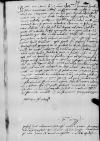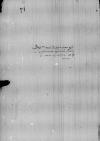List #1929
Ioannes DANTISCUS do Tiedemann GIESEHeilsberg (Lidzbark Warmiński), 1538-09-24
Regest polski:
Dantyszek zawiadamia Giesego, że poprzedniej nocy powrócił z Krakowa długo oczekiwany posłaniec [Mauritius]. Przywiózł on zatwierdzenie artykułów toruńskich, w tym wymogu indygenatu. Danytszek posyła Giesemu kopię tego – nierozpieczętowanego jeszcze – dokumentu.
Król zgodził się także, aby dochody z podatku przechowywać w ratuszu toruńskim. Dantyszek przekazuje na ręce Giesego list króla w tej sprawie do [Stanisława] Kostki oraz przeznaczone do rozpowszechnienia przez wojewodów kopie listu królewskiego, przekładającego następny sejm [Prus Królewskich] na wiosnę.
Zdaniem Dantyszka konfirmację artykułów, a zwłaszcza zawarcie w niej właściwej interpretacji terminu indigena, zawdzięczają Samuelowi Maciejowskiemu.
Dantyszek obiecuje dołożyć starań, by wszystko było gotowe na konsekrację Giesego, mimo nieobecności krawca (w postscriptum informuje jednak o jego przybyciu). Wezwał już na uroczystość kustosza [warmińskiego Feliksa Reicha], który powinien przybyć [do Dobrego Miasta w piątek [27 września].
Zapewnia, że nie było potrzeby, by Giese przepraszał za otwarcie listu [adresowanego do Dantyszka].
Rękopiśmienne podstawy źródłowe:
Publikacje:
| ||||||
Tekst + aparat krytyczny + komentarzZwykły tekstTekst + komentarzTekst + aparat krytyczny
Reverendissimo Domino
Reverendissime mi Domine, frater et amice carissime et honoran(de) or honoran(dissime)⌈honoran(de)honoran(de) or honoran(dissime)⌉.
Salutem et fraterni amoris commendationem.
Hesterna nocte rediit is cf.
Evicimus item, quod pecuniae contributi
Opera reverendi domini decani Cracoviensis
Ex
Reverendissimae Dominationis Vestrae frater integerrimus
Postscript:
Postquam has obsignare statuissem, venit
De reseratis cf.
[1] Constitutions of the
[2] In his cf.


 BCz, 245, p. 78
BCz, 245, p. 78